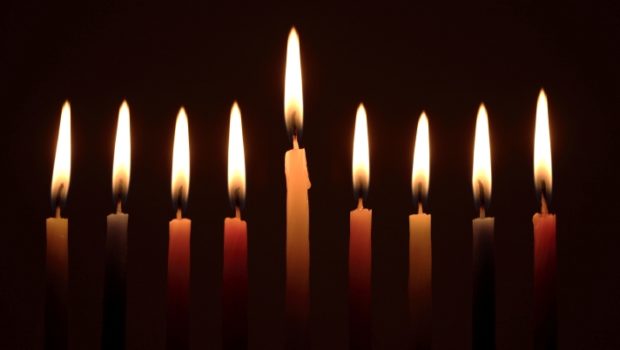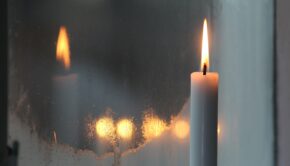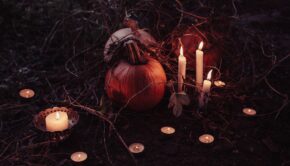Hanukkah: The Dynamic Emergence of the Eternal Light – Part 1
This post is part one of a three part series on Hanukkah. As we move through this eight day holiday, Rabbi Margalit will be sharing thoughts on the emergent and dynamic aspects of Hanukkah.
“Emergence is our inheritance as a part of the universe; it is how we change.”
—adrienne marie brown, Emergent Strategy
Hanukkah is not mentioned in the Torah at all. It is the first Jewish holiday created completely by the people (Purim is a kind of hybrid case: Esther and Mordecai declared it a holiday, and they weren’t prophets. But, their scroll, The Scroll of Esther, did make it into the biblical canon, which means that the tradition considers it to have some divine inspiration).
In the Jewish calendar the dark part of the year, the winter, is the time when we say that our human initiative takes center stage. The darkness symbolizes God’s hiddenness. The summer is for biblical holidays such as Passover, Shavuot and Succot, which all appear in the Torah and are connected to explicit actions of God. But Hanukkah and Purim are human created holidays. The darkness and hiddenness of God doesn’t mean we’re lost; it actually gives humans the opportunity to come into our own.
In the “Al HaNissim” blessing which is said on Hanukkah we recount the way that God saved the Jews by helping them win the war against the Greeks. Although, there was no splitting of the sea or smiting of the enemy blind in the middle of the night. The fighting was done by the Maccabees themselves. The miracle was in their courage and determination against all odds to defeat the much more powerful Greek army. Then, in the conclusion of the blessing it describes how they came and lit the candles in the holy Temple. But it doesn’t mention any miracle with the candles. Instead, it concludes with the simple line: “And they established these eight days of Chanukah in order to give thanks and praise to Your great name.”
|
Hanukkah is a holiday, therefore, that helps us celebrate the emergence of our human capacity to grow beyond the biblical paradigm: We didn’t wait for a prophet to tell us what to do, or for an explicit miracle to bowl us over with awe.
The creators of this holiday saw that something miraculous had happened, maybe in themselves, and they knew that they needed to acknowledge it and give thanks. It’s a good lesson for us as well, as we search for inspiration and light in the darkness.
Hanukkah, which means dedication, is also a great time to rededicate ourselves to spiritual practice. If you would like to dive more deeply into teachings like this one, and develop practical spiritual tools for your daily life, consider signing up for our 2019 class: The Royal Road to Relational Spirituality. We’d love to have you in our community of seekers, builders, and doers! Click here for more information.






